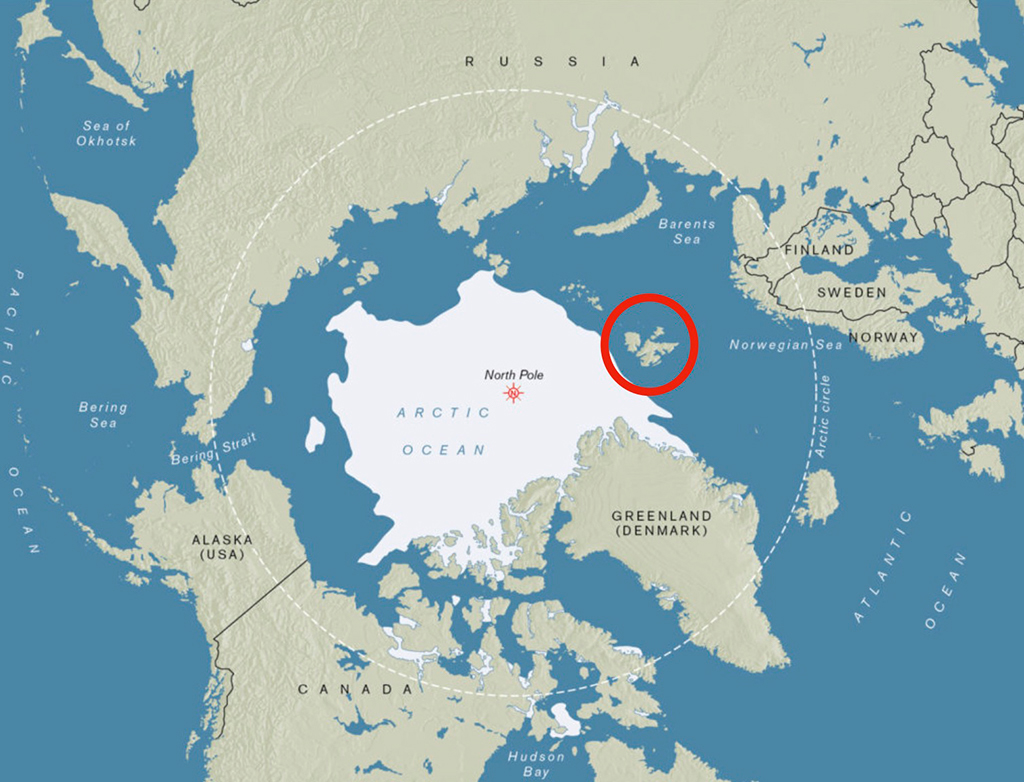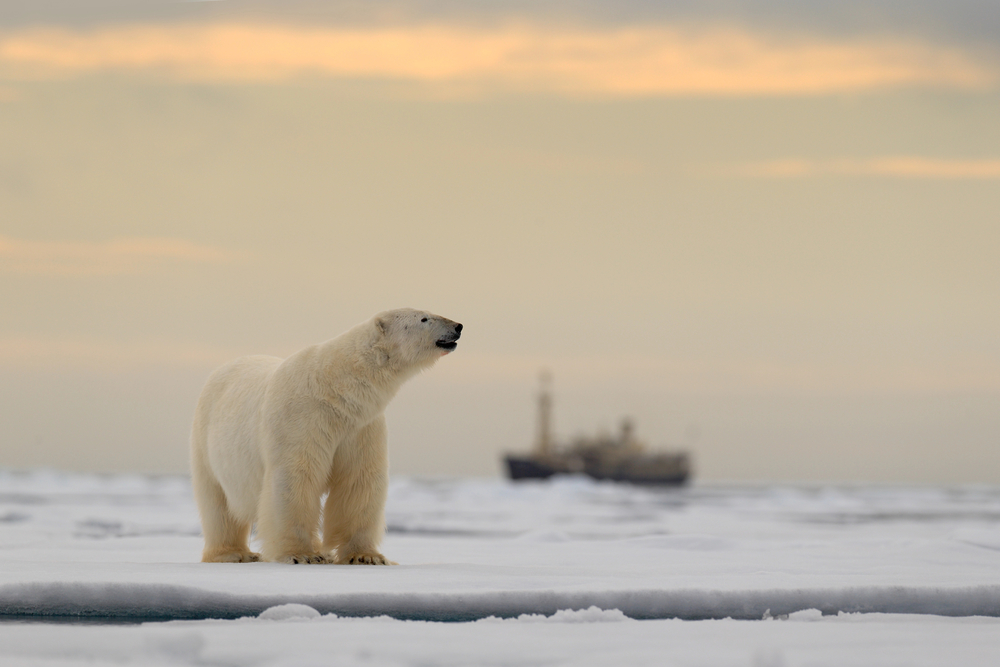Moscow may target Norway's Svalbard archipelago, also known as Spitsbergen, in its first direct attack on a NATO country. The ambiguity surrounding Svalbard's status within the Alliance could divide NATO on whether a Russian move would trigger Article 5, the collective defense clause.
Moscow’s interest in Svalbard, a demilitarized region, has grown because of Norway’s imposition of sanctions, global warming, and Russian concern about defending the western entrance to the Northern Sea Route.
Russian interest in the area has intensified because China has joined Russia in using Svalbard for research, access to Svalbard’s coal has become more important, and a vast privately owned parcel of land is now for sale.
Paul Goble, a former US State Department expert on the countries of the former USSR and ex-CIA analyst, provides a detailed explanation in an article for The Jamestown Foundation.
Why Svalbard?
Given Moscow’s aggressive rhetoric about NATO and threats to attack one or more of its members if the West continues to support Ukraine, many in Russia and the West have been speculating about where such a Russian move might occur. Most have focused on Poland, the Baltic countries, and Finland as possible targets, but perhaps the most likely one is elsewhere: the Svalbard archipelago.

Svalbard is part of Norway, a NATO member, but is demilitarized by the provisions of the 1920 Svalbard Treaty, which has currently been signed by 46 countries, including the US, Norway, and France. Because of that agreement, NATO remains deeply divided as to whether, in the case of a Russian attack, all the members of the alliance would want to invoke the provisions of Article 5 of the NATO charter, which requires alliance members to view an attack on one as an attack on all. That division, of which Moscow is well aware, may lead the Kremlin to decide that an attack on Svalbard is less risky than an attack on any other NATO country.
Treaty signed without Russia
The Svalbard archipelago, often referred to as Spitsbergen, the largest and only populated island in this group, lies approximately 1,000 kilometers (about 620 miles) northwest of Norway and covers 22,000 square kilometers (about 8,500 square miles) of territory. The island has fewer than 3,500 residents, of whom approximately a fifth are Russians and a handful are Chinese.
Because of its isolation, Svalbard was one of the last European territories whose status remained undefined into the 20th century, with various countries, including Norway, Sweden, and Russia, using it as a base for shipping and mining and even claiming it as their own.
In 1920, however, the Western powers, without Russia’s participation, signed a treaty that declared that Norway had sovereignty over the islands but required that Oslo kept the archipelago demilitarized and permitted the development of other national communities, including, most prominently, the Russians.
After the demise of the Soviet Union, Moscow continued to expand its presence on the archipelago. By the early years of the 21st century, there were nearly 4,000 Russians there, most of whom were engaged in coal mining.
The closure of these mines due to others elsewhere being more cost-effective and the fall of the demand for coal, however, led to a rapid decline in the number of Russians in Svalbard over the last 15 years. There are now fewer than 700. In the summer of 2022, they became the center of a controversy when Norway imposed sanctions on Russia because of its war in Ukraine. Oslo said it would restrict Moscow’s ability to supply the Russian community in Svalbard. That sparked outrage in Moscow and even suggestions by Russian parliamentarians that their country should use military means to defend its rights under the 1920 treaty. However, this conflict was resolved without use of force.
Division in NATO
That clash also highlighted divisions in Europe that may now be more critical. NATO Secretary General Jens Stoltenberg said then and has repeated that any attack on Svalbard would be treated as an attack on the Alliance as a whole and thus trigger an Article 5 response. However, he is Norwegian, and his words appear to reflect Oslo’s hopes more than the position of all NATO countries.
Many in the alliance, including the US, have not adopted an unequivocal position. Thus, in a crisis, Putin might be tempted to test the West in a place few have thought about.
Such a crisis now appears to be brewing, the result of an extraordinary mix of developments coming together:
- Moscow is increasingly angry about the West’s growing projection of power in the Arctic, one the Kremlin believes Russia has no choice but to oppose to defend the entrance to the Northern Sea Route and support its expansive claims to the Arctic seabed.
- Ever more Russian officials, in comparison to two years ago, are suggesting that Norway has allowed the West to militarize Svalbard and thus has lost the right to claim sovereignty over the archipelago.
- Russia, for the first time, enjoys the support of China on this issue. Beijing has now called for the development of a seed vault in Russia to replace the Svalbard Global Seed Vault and has simultaneously dispatched a new research expedition to the Norwegian archipelago to show the flag.
- International demand for coal has been rising, and the rapid warming of Svalbard, currently running at twice the rate of the Arctic in general, is making mining there an increasingly attractive option for Moscow, which sees such sales as helping to maintain its economy and project power.
- In what may prove the black swan of this trend, a parcel of private land in Svalbard larger than Manhattan has been put up for sale, sparking fears that whoever purchases it will use it against the interests of one side or the other.
So far, Russia has largely limited its response to patriotic actions among Russians in Svalbard beyond propaganda campaigns in Russia about the Svalbard situation. However, it has increased its military actions in the area around the archipelago.
Some may assume that the current upsurge in tensions will ease and be resolved in much the same way the crisis was two years ago, especially as some Russian businesses are very publicly talking about organizing Russian tourism to Svalbard, visits that, because of the 1920 treaty, would not require visas but could be used to test Norway’s position. Such an outcome is certainly to be desired, but it is far from certain, especially given the overheated atmosphere in the Kremlin and Putin’s search for new targets to threaten and undermine the West and its support for Ukraine.
To ensure that Svalbard, a place mostly known, if at all, in the past for having more polar bears than people, does not become a casus belli, NATO needs to adopt a common position regarding the defense of Svalbard against any Russian attack. A failure to do that will only increase the likelihood that Putin will target this isolated archipelago as the next step in his campaign to weaken the West.
Read more:
- NATO allies “deeply concerned” about recent Russian hybrid operations on Allied territory
- Poland requests NATO nuclear weapon placement amid Russia's nuclear threats
- The Hill: Senator Graham warns Russia's ambitions extend beyond Ukraine's borders

